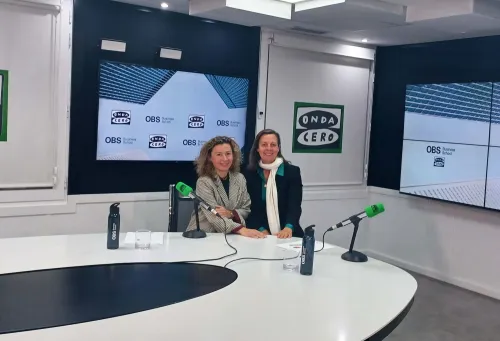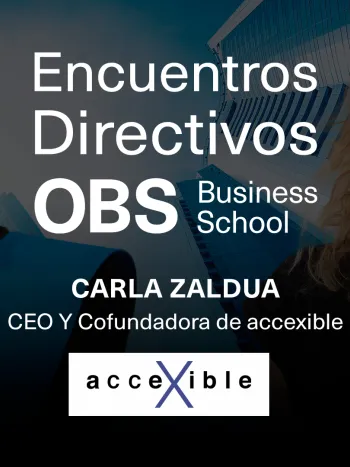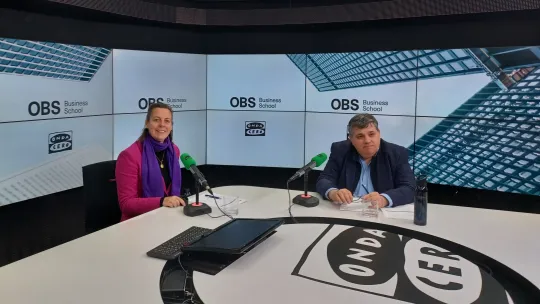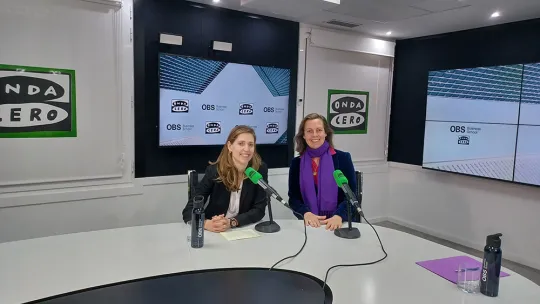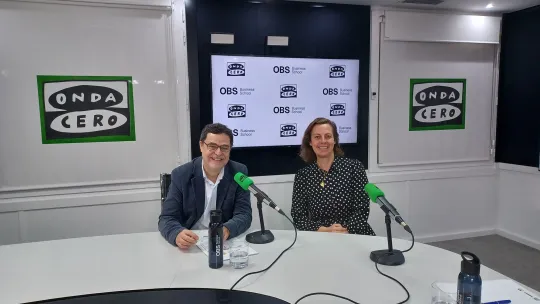
Executive Meeting with Carla Zaldúa
Regulating the ethics of algorithms is a huge challenge
OBS Business School held its fifth and last Executive Meeting of 2024 with the participation of Carla Zaldúa, CEO and Co-Founder of AcceXible. Together with Dr. Casilda Güell, Dean of OBS, Zaldúa spoke about Artificial Intelligence in the field of healthcare.
AcceXible is an application created in 2017 for the detection, through speech, of certain diseases related to mental health and cognitive impairment. An alert system that, based on what a person says and how they say it (tone of voice, concordance of words, etc.) identifies possible problems. It does this by sending a voice sample of just one minute, in English or Spanish, to the cloud, where it is passed to an artificial intelligence algorithm. Subsequently, this audio is converted into text and then, again thanks to AI, is subjected to natural language processing analysis. With the combination of both factors, a result is obtained that is of great help to health professionals.
The company co-founded by Carla Zaldúa in 2017 received EU funding, something that only 5% of proposals achieve. Its first algorithms already detect mild cognitive impairment and dementia in early stages with 90% accuracy. It is now developing models to identify depression and anxiety and, eventually, Alzheimer's disease.
AcceXible is a project that is particularly well received in Latin America, where the health system is not as robust as in Spain: "We are in five universities in Mexico, where they use the app to detect psychological problems in students", says Carla Zaldúa. Today, AcceXible is already considered a health product, and as such, it must meet very strict ethical requirements: justify where the data comes from, that they are explainable, etc. It is undoubtedly an illustrative example of how AI, so reviled in recent times, can be especially useful for the improvement of society.
At the meeting, Carla Zaldúa highlighted the enormous determination that was necessary to launch AcceXible, and she recommends that other entrepreneurs in the technological field not give up in the face of negatives. She also advises them to launch the product on the market as soon as possible, even if it has to be improved later, as she considers it essential not to wait for the ‘perfect’ version and to be able to test the product in a real environment.
Technology is already present in virtually all areas of our lives. However, in the health sector, the problem comes when these advances cross certain limits. This is the case of new apps that, unlike AcceXible, do not transform audio into text, but are capable of reading thoughts and converting them into text. Carla Zaldúa says: "These apps can be very useful for people who cannot speak, but there is a very thin line between them and what is considered ethically correct. Therefore, regulating them is a huge challenge".
